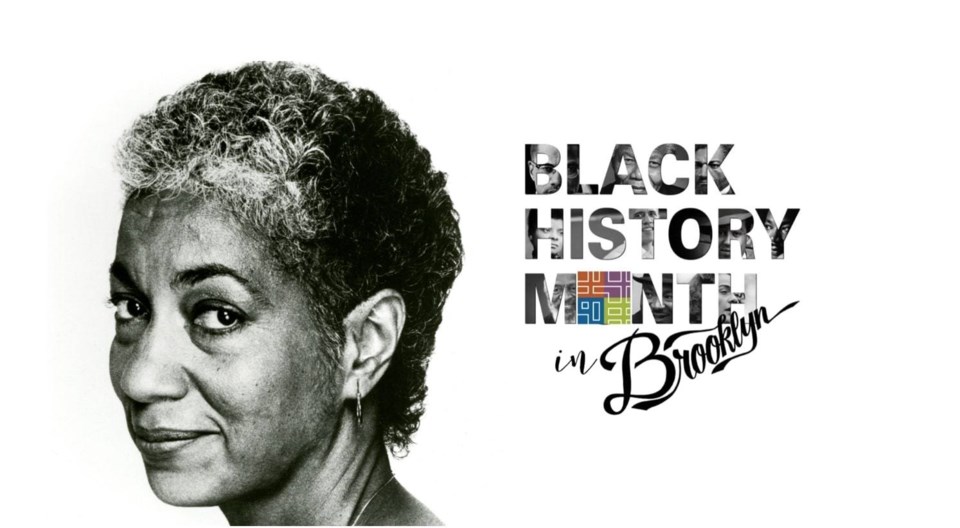Poet, playwright and essayist June Jordan was one of the most widely published and highly acclaimed African-American writers of her generation.
Born July 9, 1936, in Harlem, New York, and raised in Bedford Stuyvesant, Jordan's future was shaped, for better and for worse, by her relationship with her father.
She described her childhood in her 1999 memoir Solider: A Poet's Childhood. Subjected to beatings by her father, Jordan was forced to read and recite from Shakespeare's plays, the Bible, the poetry of Paul Lawrence Dunbar and Edgar Allan Poe, all before she was five years old. By the time she was seven, she was writing poems herself.
As a teenager, she commuted to Midwood High School. After one year at Midwood, her parents transferred her to the Northfield School for Girls in Massachusetts (later joined with Mount Hermon). After graduating from high school in 1953, she attended Barnard College. There she met Michael Meyer, a white Columbia University student, whom she married in 1955.
Jordan accompanied Meyer later that year to the University of Chicago, where she enrolled as well. She returned to Barnard in 1956 before finally leaving in February 1957. In 1958 the couple's only child, Christopher David Meyer, was born. The couple divorced in 1965.
Jordan established her writing career in the 1960s with the publication of stories and poems (under the name June Meyer) in periodicals including Esquire, the Nation, Evergreen Review, Partisan Review, Black World, Black Creation, Essence, the Village Voice, the New York Times and the New York Times Magazine.
Her writing came to national attention in 1969, with her first book of poetry, Who Look at Me, a collection of works that depict interracial relations and African-American experiences of self-definition in a white-dominated society. Jordan used conversational, often vernacular English to address topics ranging from family, bisexuality, political oppression, African-American identity, racial inequality and memory.
Following her breakout book, Jordan went on to publish volumes and volumes of works of poetry, books for children and young adults, and collections of essays, articles and lectures.
Some of these works include The Voice of the Children, a reader edited with Terri Bush (1970); Some Changes (poems, 1971); His Own Where (young adult novel, 1971); Dry Victories (juvenile and young adult, 1972); Fannie Lou Hamer (biography, 1972); Passion: New Poems, 1977—1980 (1980); Civil Wars (essays, articles, and lectures, 1981); Kimako's Story (juvenile, 1981); Kissing God Goodbye: Poems, 1991—1997 (1997); Affirmative Acts: Political Essays (1998), amongst several others.
Jordan is also the author of several plays, including In the Spirit of Sojourner Truth, produced in New York at the Public Theater, and For the Arrow That Flies by Day, a staged reading produced in New York at the Shakespeare Festival. Jordan also composed the lyrics and wrote the libretto for Bang Bang Uber Alles in 1985.
Throughout her prolific and controversial literary career, Jordan was regarded as one of the key figures in the mid-century African-American social, political and artistic milieu. She also taught at many of the country's most prestigious universities including Yale University, State University of New York-Stony Brook and the University of California-Berkley.
Jordan received several grants and fellowships for her writing, including a Rockefeller grant for creative writing in 1969 and the Prix de Rome in Environmental Design in 1970.
She was awarded a Yaddo fellowship in 1979, a fellowship in poetry from the National Endowment for the Arts in 1982, and a fellowship award in poetry from the New York Foundation for the Arts in 1985.
Her book, The Voice of Children, received a Nancy Bloch Award in 1971. And in the same year, His Own Where was selected by the New York Times for its List of Most Outstanding Books.
Jordan was an executive board member of the American Writers Congress, a board member of the Center for Constitutional Rights and the Nicaraguan Culture Alliance, and a member of PEN. She was also a regular political columnist for Progressive magazine.
June Jordan died June 14, 2002, in Berkeley, Calif., after a two-year battle with breast cancer.
In an obituary for the San Francisco Chronicle, Annie Nakao wrote that the author "left a mountain of literary and political works." Nakao added: "As I discovered soon enough when I picked up a June Jordan work, its contents could shout, caress, enrage. The thing it never did was leave you unengaged."
Jordan was known for her fierce commitment to human rights and progressive political agenda. Over a career that produced twenty-seven volumes of poems, essays, libretti, and literary works for children, Jordan engaged the fundamental struggles of her era: civil rights, women's rights and sexual freedom.
June Jordan, we acknowledge your vast literary contributions and honor your memory.
*Sources: answers.com, poetryfoundation.org, theweeweb.co.uk, patch.com



.png;w=120;h=80;mode=crop)
